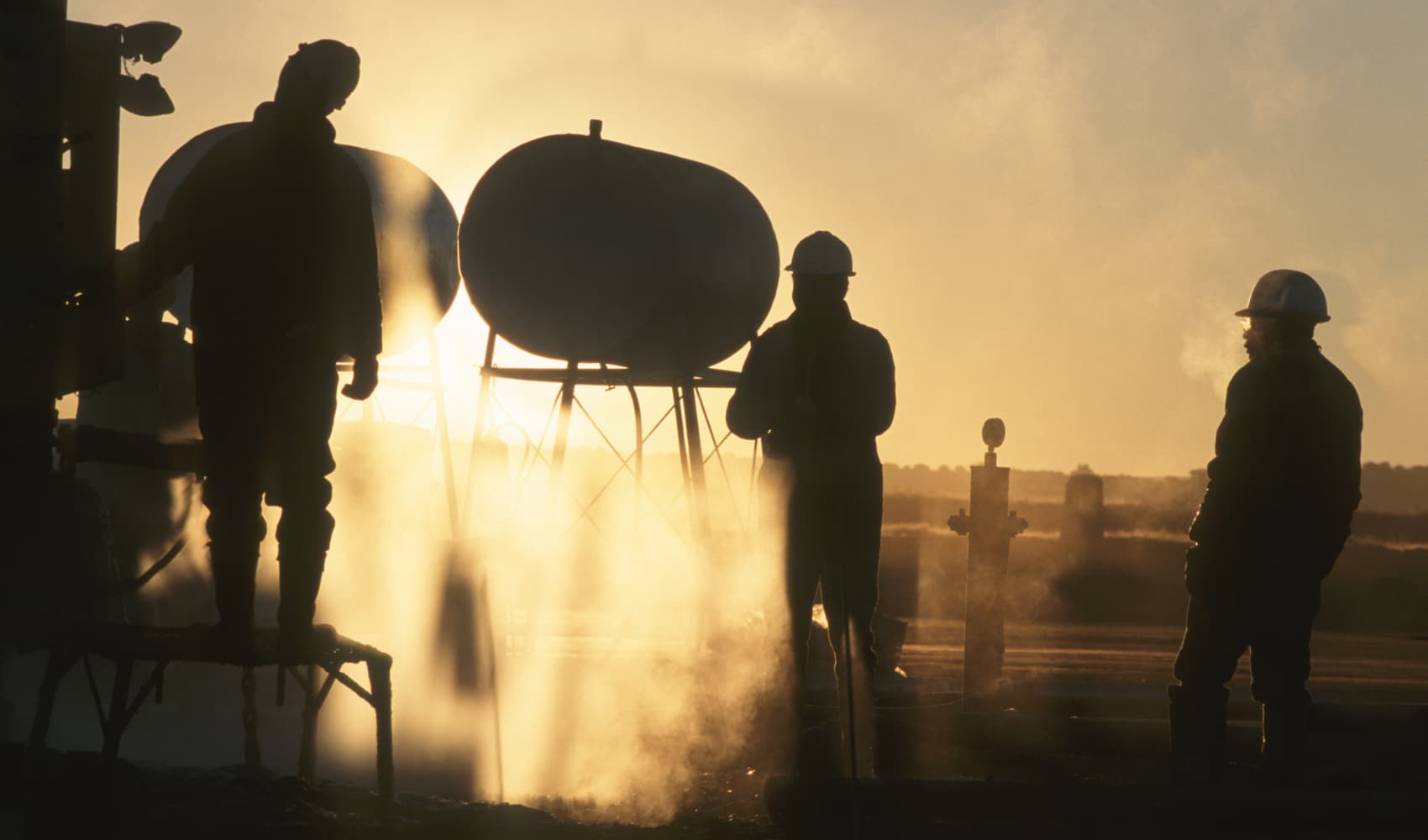
(Click here to subscribe to the Delivering Alpha newsletter.)
Geopolitical tensions in Ukraine have had a massive impact on global energy supply chains and prices this year, reminding the world how reliant we are on fossil fuels and how far we are from a true shift toward clean energy. That shift will require $131 trillion in energy transition investments by 2050, according to the International Renewable Energy Agency.
To find out how all this capital will be deployed, Leslie Picker sat down with Apollo Global Management's Olivia Wassenaar for the Delivering Alpha newsletter. Wassenaar helms Apollo's sustainable investing platform and also co-leads natural resources at the firm. Her team has invested $19 billion in the energy transition and decarbonization and has committed $50 billion more over the next five years.
Get San Diego local news, weather forecasts, sports and lifestyle stories to your inbox. Sign up for NBC San Diego newsletters.
(The below has been edited for length and clarity. See above for full video.)
Leslie Picker: Given the discussions that you're having in and out of the boardrooms, do you think that the war in Europe has exacerbated this transition to clean energy? Or do you think it's actually slowed it as people realize, "Wait a minute, we can't transition this quickly without making sure that we are still able to fulfill the needs of traditional sources of energy."
Olivia Wassenaar: I do think everything that's going on has made us all realize that we do need to speed up the transition. This is something that has been at work for the last several decades and yet in many ways, it still feels like we're at Ground Zero. When we look at the amount of capital for the next 10, 20, 30 years that needs to get invested in the energy transition, we estimate it's about $4.5 trillion a year to get us where we need to be in the future.
Money Report
Picker: You think then that you can do both at the same time, effectively, ensure that nations especially in the U.S. and Western Europe are able to meet their short-term energy goals while also focusing on the long-term? Or do you think that the two actually get muddled given the crisis nature of the situation?
Wassenaar: We do absolutely need to transition to cleaner fuels over time, but you're right in that it's something that is not going to happen overnight. And so, we look at some things that are bridge fuels. For example, something like LNG is very critical for taking lower carbon fuels to areas that are currently burning higher carbon fuels such as coal and diesel, for example. So, it is very much a transition. It is an area where we will see evolution over time and I do think it's important to acknowledge that.
Picker: In terms of investment, there's a statistic that's been thrown out there saying that the annual clean energy investment globally will need to be about $4 trillion to achieve net zero carbon emissions by 2050. That 4 trillion will need to take place probably within the next five years on an annual basis that is a lot of money going into one area. Do you think that that will come from private capital? And where else? And what role specifically does private capital play in that investment?
Wassenaar: I think there's a really big role for private capital to play here and that's something that really excites me when I look at what Apollo is doing. We've looked at it and over the last five years we've invested about $19 billion into the energy transition and decarbonization. And as we look at where we think we can invest going forward, we've targeted $50 billion over the next five years. And that's in all different forms of capital, that's across the capital structure, and that's really throughout the climate ecosystem, as we look at different ways to really invest capital and drive change here.
Picker: What about the role of private capital in traditional sources of energy? I ask because in recent years, we've heard laments from LPs and others looking at the role that private capital has played in fossil fuels and high carbon emitters. And people have really shown that in recent years. And so, I'm curious if that increases your hurdle in making a new investment in some of the browner sources of energy, which, as we've discussed, have become increasingly more of a necessity recently, or if you were much more focused these days on clean energy instead?
Wassenaar: One of the areas of focus for us has really been in helping traditional energy companies really achieve their own transition and their own targets here. So, for example, last year, we invested in an environmentally friendly compression company that helps oil and gas companies as they compress natural gas to emit less carbon. And for us, we view that as a quintessential investment in the transition to really, sort of help these companies be where they need to be.
Picker: Given the dynamic at play, and we've seen recently, several multibillion-dollar climate funds raised both from an infrastructure standpoint, a private equity standpoint, some private credit funds raising - I know that's been a focus of yours as well. Given the increased intention to clean energy and clean energy-adjacent companies and investments, are you seeing a valuation differential between those types of investments versus traditional energy companies? And where do you see opportunity between the two?
Wassenaar: I actually love seeing that there's so much capital going to this space. As we discussed before, there is such a giant need for capital here, so this is a situation where really the more the merrier. There is just really so much to do. As I think about valuations and where we're focused, absolutely, there are parts of the value chain in the broader ecosystem where you are seeing really high valuations. Where we've tried to focus at Apollo is areas where there is value and where there is also real opportunity. So, for example, for us, we have spent a lot of time looking at some of the services in and around the energy transition. So, for example, you know, rather than just investing in a wind farm, things that we have invested in are wind logistics businesses, businesses that do the operation and maintenance, so things like rotating out blades or gearbox maintenance, the staging in and around assembling a wind farm. These are the types of things that we feel are really priced right for private equity, where you can see a private equity rate of return but are also still very critical services in and around the energy transition.
Picker: What about private debt? Are these businesses the type that they're looking for sources of credit, alternative sources of credit at this point in time? Are they profitable enough to seek it? And to get that from you?
Wassenaar: The answer is it depends. You know, we see some companies that just aren't ready yet. But for the most part, we are really seeing a growing up with this business. I worked on my first solar deal back in 2008 and it's amazing to me the difference we see in the industry between then and now. And I remember we weren't sure if you get financing on panels, what the lifecycle was, things like that. Bankability was a really big question. As we look at where the sector is today, we've just seen such a massive evolution, that especially in things like wind and solar, there is absolutely the ability to finance these as well as other businesses like biofuels, bioenergy, batteries, etc. There are some businesses that are newer, that are earlier stage, that may have a technology risk component, that may not be the right recipient of debt at this point. But we are very much at Apollo having early-stage conversations with these companies to make sure that we are well set up to be a provider of capital if and when they reach the stage in their development that that's something they're looking to do.
Picker: When people think of natural resources, these days, they think of inflation and it's been one of the few areas, at least from the commodity side of things that's seen somewhat of a tailwind from what's going on in the macro environment. What does it mean, though, for your portfolio companies? Is the story that simple, just the fact that these companies have exposure to natural resources, their margins are going to do better? Or is it more complicated behind the scenes?
Wassenaar: It is absolutely more complicated, and every company is a little bit different, but we do very much see the impacts of inflation really throughout our portfolio. And gosh, I was with one of my businesses last week in Texas, and just talking about the ability to get trucks, right. So, they've got supply chain issues and on top of that, the price of the trucks versus where they were last year, and versus what we had in the budget has gone up materially. And so, you look at this and say, this is a services business, they absolutely need to get their employees and their equipment from one destination to another. And being able to source and obtain trucks is very critical to what they do. But just the way which we think about it is so different from a year ago.
Picker: You've actually been interested in sustainability before it was cool. You've been interested in this area for a really long time and kind of grew up through your career in finance, studying sustainability. Can you give us a sense of how the market has really changed in this area, given your long history in looking at it?
Wassenaar: It has changed so much, but all in a really good way…it's been a long 15 plus years here, as you've seen. Some of these companies go up and down. There were some trouble years from a financing perspective but what I love today is it has very much become mainstream. When we look at our current natural resources fund at Apollo, 60% of the natural resources fund today is in energy transition and decarbonization related businesses, which is really incredible if you think about a mainstream private equity fund that targets 20% plus rates of return, not venture capital, private equity, and this is an area that we should deploy a significant amount of capital. For me, coming from early days of the World Bank and having seen the sector for so many years, it really has been a wonderful transition to witness.






